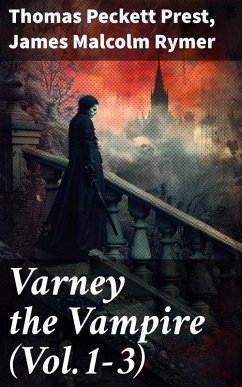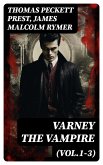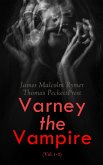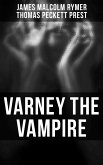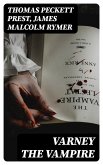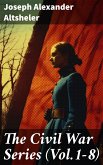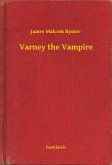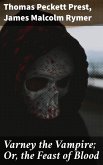Varney the Vampire (Vol.1-3) is an enthralling collection that dives deep into the gothic and penny dreadful traditions of the 19th century. This anthology offers a sprawling narrative that intertwines horror, melodrama, and the supernatural in a manner that reflects the Victorian zeitgeist. The stories sweep through a diverse range of styles, from chilling macabre to suspenseful intrigue, emphasizing a vivid tapestry of the period'Äôs fascination with the otherworldly. With its gripping plotlines and atmospheric settings, this collection brings to life the eerie exploits and moral dilemmas entwined with Varney's encounters, evoking a haunting yet captivating experience. Both Thomas Peckett Prest and James Malcolm Rymer, through their collaborative pseudonym, provide a profound examination of the gothic genre. Their contributions to the realm of serialized literature highlight their skills in crafting narratives that resonate with the fears and curiosities of their time. The anthology aligns itself with the vibrant tradition of literary gothic revival and the growing popularity of serialized stories in periodicals, as it brings together varied voices that collectively enrich the narrative fabric of this collection. This anthology is an exceptional opportunity for readers to explore a spectrum of gothic themes and narrative styles, all within a single volume. The diverse perspectives offered by the authors create a rich dialogue on the societal and personal intricacies encountered during the Victorians' fascination with the dark. Ideal for literature enthusiasts and scholars alike, Varney the Vampire invites its audience to delve deeply into a world of intrigue and existential contemplation, thus offering invaluable insights and fostering a greater appreciation for the gothic tradition and its lasting influence on storytelling.
Dieser Download kann aus rechtlichen Gründen nur mit Rechnungsadresse in A, B, BG, CY, CZ, D, DK, EW, E, FIN, F, GR, H, IRL, I, LT, L, LR, M, NL, PL, P, R, S, SLO, SK ausgeliefert werden.

